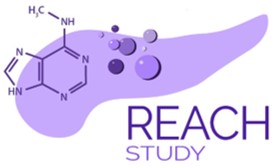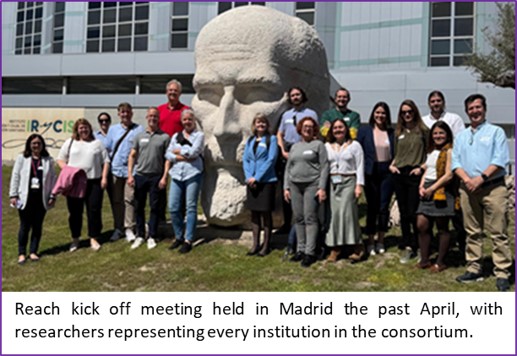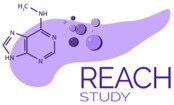REACH: a new European initiative to reprogram Pancreatic Cancer treatment coordinated from our institution

REACH, standing for Reversing Epitranscriptomic Alterations for CHemosensitization of Pancreatic Cancer, is a European initiative whose purpose is to make epitranscriptomic-based therapies in pancreatic ductal adenocarcinoma (PDAC) a clinical reality, by altering the epitranscriptomic nature of PDAC tumor cells and cancer stem cells (CSCs) with targeted therapies to modulate m6A marks, an epitranscriptomic modification that shapes the tumor transcriptional landscape.
The consortium, with the task to carry out the project, is coordinated by the Ramón y Cajal Health Research Institute (IRYCIS) and includes 5 partners located throughout Europe: Spain, Slovakia, Germany and Latvia. This 3-year-project has been granted by the EU TRANSCAN partnership (TRANSCAN-3 call) within the scope of the Horizon Europe R&D programme, under the call "Translational research on cancer epigenetics".
Focused on improving treatment outcomes for PDAC, one of the most aggressive and treatment-resistant cancers, REACH project will develop innovative therapeutic strategies by using nanoparticles to deliver drugs that can reprogram the tumor, making cancer cells and CSCs more responsive to chemotherapy. By targeting the molecular and cellular mechanisms that contribute to drug resistance, REACH seeks to enhance the effectiveness of existing treatments and, ultimately, improve patient survival rates.

At our institution, the team is led by Dr. BRUNO SAINZ ANDING, head of Biomarkers and personalized approach to Cancer group (Area 3 - Cancer) and his team, including Drs. JULIE EARL, SONIA ALCALÁ, LAURA RUIZ and others. Apart from coordinating the consortium, the team will be involved in identifying the most relevant m6A inhibitors that will then be encapsulated in PDAC-tropic nanoparticles and tested in patient-derived xenograft (PDX) models within the Hospital Ramón y Cajal's Biobanks & Biomodels ISCIII-funded Platform. REACH will give visibility to the IRYCIS and its Central Support Units, as well as offer young scientists training opportunities at other institutions within the EU TRANSCAN Capacity Building initiatives.
As the REACH project progresses, it brings renewed hope to patients and families affected by pancreatic cancer. By combining cutting-edge nanotechnology with a deep understanding of tumor biology, this European collaboration is paving the way for more effective, personalized treatments. If successful, REACH could mark a turning point in the fight against one of the deadliest forms of cancer, offering a future where resistance to chemotherapy is no longer a barrier to survival.

*Project funded by Instituto de Salud Carlos III & Fundación Científica Asociación Española contra el Cáncer
"Congratulations to the IRYCIS team for their strong and committed efforts in reducing the cancer burden in our society"


